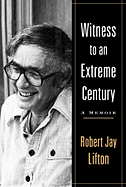
Renowned psychiatrist Robert Jay Lifton (Home from the War; The Nazi Doctors) has written a memoir that resists easy categorization. This is fitting, since Lifton's wariness of dogmatism has characterized his work in psychohistory for more than half a century. In the 1950s, Lifton was a young psychiatrist developing his own work method that couched lengthy interviews in a larger "mosaic" of historical and cultural context.
In detailed accounts of his major studies--on victims of systematic brainwashing in Communist China, survivors of the atomic bomb in Hiroshima, Vietnam veterans and Nazi doctors--Lifton not only chronicles his life's work but also delves into the most horrific events in recent history and the minds of people who both witnessed and created these "atrocity-producing situations." The trajectories of his personal, professional and intellectual life expand to encompass not a single life but an entire era. From his roles in antiwar protests and informal "rap groups" for "vets and shrinks" to his court testimonies in high-profile trials and 45 years of interdisciplinary exchange at the Wellfleet meetings he hosted with his wife, Lifton's activities form a nuanced narrative that is also an examination of war and peace, good and evil, and collective versus individual psychology.
Perhaps even more impressive than Lifton's many accomplishments is the eloquent, conversational style he employs in tackling often-heavy subject matter, as if he is now the interviewee, sitting across from his reader, injecting humor, anecdotes and even dreams into a remarkable life story. This isn't a typical memoir, but then, Robert Jay Lifton hasn't had a typical life. --Claire Fuqua Anderson, fiction writer

